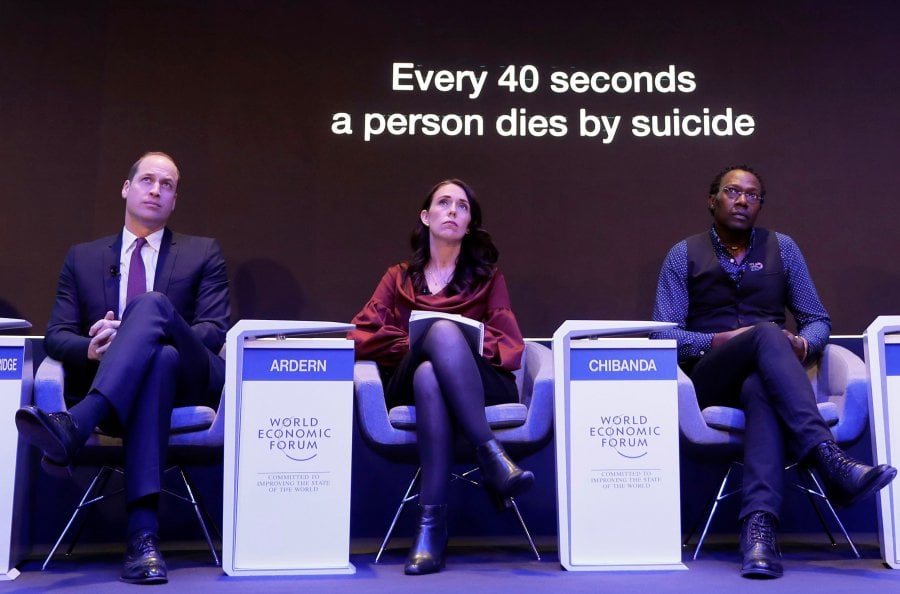Time to act - ‘Friendship Bench’ founder joins HRH Duke of Cambridge on mental health panel at Davos
24 January 2019 London School of Hygiene & Tropical Medicine London School of Hygiene & Tropical Medicine https://lshtm.ac.uk/themes/custom/lshtm/images/lshtm-logo-black.png
The panel, which included HRH Duke of Cambridge and the New Zealand Prime Minister Jacinda Ardern, called for more to be done to address the global mental health crisis, highlighting the need to reduce stigma and improve mental health in the workplace.
Dr Chibanda, Associate Professor of Global Mental Health at LSHTM, founded the innovative ‘Friendship Bench’ programme which successfully trained ‘community grandmothers’ in Zimbabwe to help improve the symptoms of patients with mental health problems, including anxiety and depression. Today 400 grandmothers are helping 35,000 people on 70 benches across Zimbabwe and there are pilots running in a number of countries with plans to expand the project worldwide.
During the WEF meeting, leaders in global health, business and politics joined Dixon on the Friendship Bench, including Prime Minister Jacinda Ardern, Mark Carney, Governor of the Bank of England and Director General of the World Health Organization and LSHTM alumnus Dr Tedros Adhanom Ghebreyesus.
Taking place in Davos, more than 3,000 leaders from business, government, civil society, academia, arts and culture, and media, as well as the foremost experts and young leaders from all over the world are attending the event. Mental health is prominently featured on the agenda this year.
A recent Lancet Commission suggests the global mental health crisis could cost the world $16 trillion by 2030. Currently most of the two-billion people who will have a mental health problem in their lifetime will have no support because of a lack of funding, stigma and discrimination around mental health conditions.
Dr Chibanda said: “It was a fantastic opportunity to speak alongside HRH Duke of Cambridge and other leaders taking action on mental health. His thoughtful, personal and professional commitment is changing the conversation on mental health in the UK and beyond. Bringing the Friendship Bench to Davos has demonstrated to world leaders that, with their support, simple, cost-effective initiatives like this can make a big difference to mental health support in many countries. I hope we will see more leaders emerging to push forward the mental health revolution.”
At the meeting, Wellcome committed an additional £200 million to mental health research to improve understanding and treatments for depression and anxiety.
Julian Eaton, Director of the Centre for Global Mental Health at LSHTM, said: “This major commitment by Wellcome is a vote of confidence in a field that has rapidly emerged over the last decade to respond to the huge global burden of mental ill health. Depression in particular is the leading cause of disability worldwide, causing more Years Lost with Disability than any other condition. I’m pleased that the focus of this new funding is to better understanding how depression and anxiety can be better treated. This should be a catalyst for substantial improvement in quality of life and wellbeing around the world.”
LSHTM's short courses provide opportunities to study specialised topics across a broad range of public and global health fields. From AMR to vaccines, travel medicine to clinical trials, and modelling to malaria, refresh your skills and join one of our short courses today.